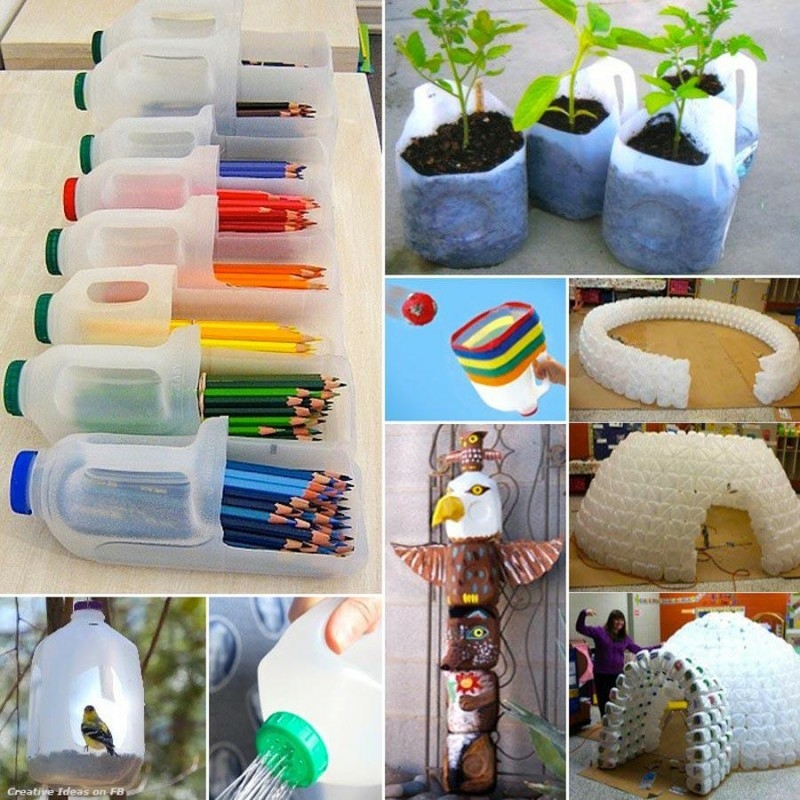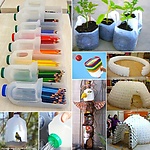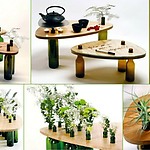Now that we cut down our needs and bought less products -or at least less non-useful products- it’s time to take a more critical step on waste prevention by focusing on reusing and recycling.
The main idea of “reusing” is to keep new resources from being used for a while longer and old resources from entering the waste stream. It does not only include conventional reuse, where the item is used again for the same function, but it also gets a creative form when the same product is used for a different function. How can it be achieved? Before recycling or getting rid of anything, consider whether it can be of any use again. Starting from the household waste, there are several easy tips that can be followed.
- Switch from disposable to reusable products (i.e. food and beverage containers, cups, plates, writing pens, batteries, razors, towels, shopping bags, etc.)
- Create your own decorative items and toys. With a little bit of imagination and a little bit of time old items can be transformed to new decorative accessories for the house, festive decoration for the annual holidays or toys for the children.
- Donate (and buy used) (i.e.household items - clothes, furniture, dishes, books, sports equipment, magazines, appliances, electronics, business attire, wedding attire, etc.)
- Compost and make your own natural fertilizers. Transform your kitchen and garden waste into a valuable and nutrient rich food for your garden.
- Share: Join in with neighbors to purchase infrequently used products such as lawn mowers, ladders, etc.
- Repair everything that is broken. Before buying new items, think if you can just upgrade or repair those that you already have. Any electrical equipment can be repaired, a computer can be upgraded, and a car can be resold.
“Recycling” is the "R" that has caught on the best. Partly, this is because there are so many curbside recycling programs today, which makes recycling so darned easy. It differs from reuse in that it breaks down the item into raw materials which are then used to make new items, as opposed to reusing the intact item. How to recycle?
- Use recycling bins for each type of recycled product and place them in convenient locations in your home/garage.
- Find out where you can recycle the following locally and close to your house: glass, paper products, plastic grocery bags (better yet - use cloth bags), plastic,aluminum, cardboard, batteries, tin cans, scrap metal, motor oil (one quart of oil can kill fish in thousands of gallons of water), ink cartridges, household appliances such as refrigerators, computer equipment and other electronic devices, aseptic packaging (square boxes used for liquids), tires
- Recycle produce label. Fruit and vegetable labels can be recycled by sticking them on a recycleable plastic container.
- Use “green” paper. In general, try to buy products/containers made from recycled material as often as possible to support the recycled product market. When purchasing paper products (toilet paper, etc.), look for paper that has been recycled using a minimum of 50% post-consumer waste. Also, purchase from companies that do not use chlorine to bleach their paper products
- Minimize the hazardous waste of your household. The other key aspect of dealing with waste effectively is to dispose of toxic products at a hazardous waste facility. Products requiring special handling include:
- Building Materials-paint, varnish, paint thinner, solvents, rust remover, wood preservatives and driveway sealer
- Automotive products-gasoline, transmission oil, brake fluid, kerosene, charcoal lighter fluid, power steering fluid, used motor oil, used oil filters, used antifreeze
- Household cleaners-spot removers, rug cleaners, metal cleaners, bathroom cleaners, oven cleaner, drain cleaner
- Pesticides-insect killers, weed killers, flea products, moth crystals, fertilizers with weed killer
- Miscellaneous-photographic chemicals, acids and corrosive chemicals, pool chemicals, compact fluorescent light bulbs (mercury), Ni-Cd batteries
References
http://www.nrdc.org/thisgreenlife/0802.asp
Images' source: http://beautyharmonylife.com/25-diy-ideas-to-recycle-your-potential-garbage/


